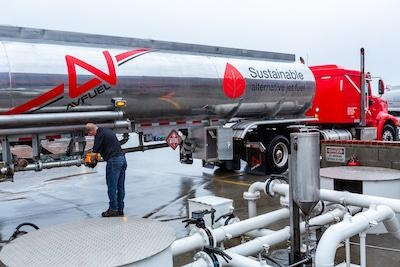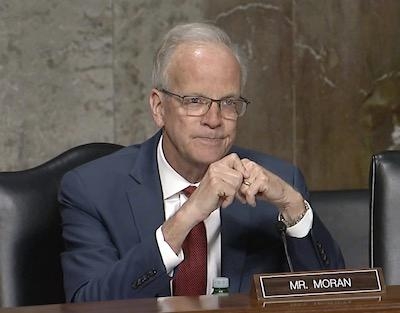Tue, Oct 01, 2024
Promotes Development of Renewable Aviation Fuels
In a significant step towards environmental improvement, U.S. Senators Jerry Moran (R-Kan.), Tammy Duckworth (D-Ill.), John Boozman (R-Ark.) and Amy Klobuchar (D-Minn.) have launched the Senate Sustainable Aviation Caucus. This works to develop Sustainable Aviation Fuels (SAFs) and lower industry emissions.

This mirrors an effort in the House of Representatives by Reps. Sharice Davids (D-Kansas) and Dusty Johnson (R-Alabama). The congressional caucus hosts forums and brings together partners to address federal policy and integrate sustainable technology developments.
“As the aviation industry strives for lower emissions and cleaner energy sources, the development and utilization of sustainable aviation fuel will be a critical element,” commented Senator Moran. “To help spur development, I am launching the Senate Sustainable Aviation Caucus. The caucus will work together to find ways to promote technologically innovative solutions to create a sustainable aviation industry and increase our nation’s competitiveness in the domestic production of sustainable aviation fuel.”
One of the caucus’ primary goals is to build energy independence. They intend to increase the supply of American-grown SAFs, making them more accessible to the commercial sector. This also works to boost job availability in rural communities, support the domestic economy, and enhance national security while cutting the nation’s environmental footprint.

“Airlines across the country are committed to developing technologies to reduce carbon emissions from air travel,” stated Senator Klobuchar. “This caucus aims to promote data, research, and innovation in sustainable aviation to ensure that the U.S. maintains its leadership in this field.”
SAF, made from agricultural materials and waste products, serves as a renewable alternative to traditional jet fuel. It is often used as a blend with conventional petroleum fuel. Recent developments in SAF have been assisted by the U.S. Environmental Protection Agency’s Renewable Fuel Standard (RFS), along with federal and state tax incentives. The White House aims for SAF to meet 100% of U.S. aviation fuel needs by 2050.
More News
From 2023 (YouTube Edition): "Ain’t Your Daddy’s Super Cub”—Don Wade Co-owned by Don and Ron Wade—the former of Don’s Dream Machines, a storied >[...]
Pilot-Rated Passenger Reported That The Pilot Did Not Adequately “Round Out” The Landing Flare And The Airplane Bounced And Yawed To The Right Analysis: The pilot state>[...]
Dead Reckoning Dead reckoning, as applied to flying, is the navigation of an airplane solely by means of computations based on airspeed, course, heading, wind direction, and speed,>[...]
Aero Linx: Lake Amphibian Club This website is created and sponsored by the Lake Amphibian Club, to help spread the word about these wonderful, versatile amphibians that can land j>[...]
“I am deeply honored to be sworn in as NASA administrator. NASA’s mission is as imperative and urgent as ever — to push the boundaries of human exploration, ignit>[...]
 Classic Aero-TV: In Praise of Alabamas Patriot Aircraft USA
Classic Aero-TV: In Praise of Alabamas Patriot Aircraft USA NTSB Final Report: Cirrus Design Corp SR22
NTSB Final Report: Cirrus Design Corp SR22 ANN's Daily Aero-Term (12.21.25): Dead Reckoning
ANN's Daily Aero-Term (12.21.25): Dead Reckoning ANN's Daily Aero-Linx (12.21.25)
ANN's Daily Aero-Linx (12.21.25) Aero-News: Quote of the Day (12.21.25)
Aero-News: Quote of the Day (12.21.25)




